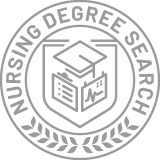Nevada Nursing Colleges
Nevada ranked #36 in the nation for nursing degrees handed out in 2021. Around 2,015 students received some type of diploma that year. Nevada colleges offer students average in-student tuition of $11,858 per year, while students attending fron out-of-state may pay something more like $18,519 per year.
About 41% of students who go to college in this state take out loans, with the average yearly loan amount being $8,063 per year.
Featured schools near , edit
Most Popular Nursing Schools in Nevada
Learn more about the most popular schools below:
There are 7,289 students at NSC in total, 7,218 of which are undergraduates, and of those, 2,079 are full-time. The average graduation time for an undergraduate student at NSC is 5.0 years.
Roughly 16% of students at NSC take out loans to pay for college. The typical student loan amount is $4,566 a year.
A typical bachelor’s-degree holder from this school earns an average of $47,092 during the early-career years.
Request Information
The total student population at Roseman University of Health Sciences is 1,554, of which 555 students are undergraduates and of those, 555 are full-time. The school has a student-to-faculty ratio of 10 to 1.
Students who graduate from Roseman University of Health Sciences with a bachelor’s degree make an average of $96,993 during the early years of their career after graduation.
Request Information
The total student population at University of Nevada - Las Vegas is 31,142, of which 25,864 students are undergraduates and of those, 19,843 are full-time. For undergraduates at UNLV, the average graduation time is 4.8 years.
24% of UNLV students take out loans to afford college costs. The average amount of student loans is $5,722 a year.
The early-career average earnings of bachelor’s-degree holders from UNLV is $42,865.
Request Information
The total student population at University of Nevada - Reno is 20,722, of which 16,845 students are undergraduates and of those, 14,323 are full-time. The average graduation time for an undergraduate student at UNR is 4.6 years.
32% of UNR students take out loans to afford college costs. The typical student loan amount is $6,624 a year.
A typical bachelor’s-degree holder from this school earns an average of $49,182 during the early-career years.
Request Information
The total student population at College of Southern Nevada is 29,965, which includes 9,431 full-time undergraduates. The school has a student-to-faculty ratio of 17 to 1.
13% of CSN students take out loans to afford college costs. The typical student loan amount is $3,324 a year.
Students who graduate from CSN with a bachelor’s degree make an average of $31,822 during the early years of their career after graduation.
Request Information
There are 526 students at Carrington College, Reno in total, 526 are full-time undergraduates. The school has a student-to-faculty ratio of 23 to 1.
Roughly 67% of students at Carrington College, Reno take out loans to pay for college. The typical student loan amount is $9,010 a year.
A typical bachelor’s-degree holder from this school earns an average of $37,283 during the early-career years.
Request Information
The total student population at Touro University Nevada is 1,687, of which 40 students are undergraduates and of those, 38 are full-time. The school has a student-to-faculty ratio of 8 to 1.
The early-career average earnings of bachelor’s-degree holders from Touro University Nevada is $92,446.
Request Information
There are 508 students at Chamberlain - Nevada in total, 262 are full-time undergraduates. The freshman retention rate at Chamberlain - Nevada is 100%, which is great when compared to the national average of 68%.
Roughly 100% of students at Chamberlain - Nevada take out loans to pay for college. The average amount of student loans is $24,000 a year.
A typical bachelor’s-degree holder from this school earns an average of $84,533 during the early-career years.
Request Information
The total student population at Arizona College - Las Vegas is 746, which includes 381 full-time undergraduates. The school has a student-to-faculty ratio of 20 to 1.
Approximately 95% of the students who attend this school take out loans. The average amount of student loans is $12,630 a year.
Students who graduate from Arizona College - Las Vegas with a bachelor’s degree make an average of $32,840 during the early years of their career after graduation.
Request Information
There are 10,249 students at Truckee Meadows Community College in total, 2,882 are full-time undergraduates. The school has a student-to-faculty ratio of 18 to 1.
2% of Truckee Meadows Community College students take out loans to afford college costs. The typical student loan amount is $4,699 a year.
Students who graduate from Truckee Meadows Community College with a bachelor’s degree make an average of $38,186 during the early years of their career after graduation.
Request Information
There are 3,772 students at Great Basin College in total, 1,062 are full-time undergraduates. For undergraduates at Great Basin College, the average graduation time is 4.0 years.
8% of Great Basin College students take out loans to afford college costs. The typical student loan amount is $5,955 a year.
The early-career average earnings of bachelor’s-degree holders from Great Basin College is $35,615.
Request Information
There are 3,495 students at WNC in total, 1,175 are full-time undergraduates. The school has a student-to-faculty ratio of 17 to 1.
Roughly 1% of students at WNC take out loans to pay for college. The typical student loan amount is $4,289 a year.
Students who graduate from WNC with a bachelor’s degree make an average of $36,917 during the early years of their career after graduation.
Request Information
The total student population at Las Vegas College is 399, which includes 399 full-time undergraduates. The school has a student-to-faculty ratio of 19 to 1.
Roughly 92% of students at Las Vegas College take out loans to pay for college. The typical student loan amount is $7,876 a year.
A typical bachelor’s-degree holder from this school earns an average of $31,830 during the early-career years.
Request InformationReferences
More about our data sources and methodologies.






